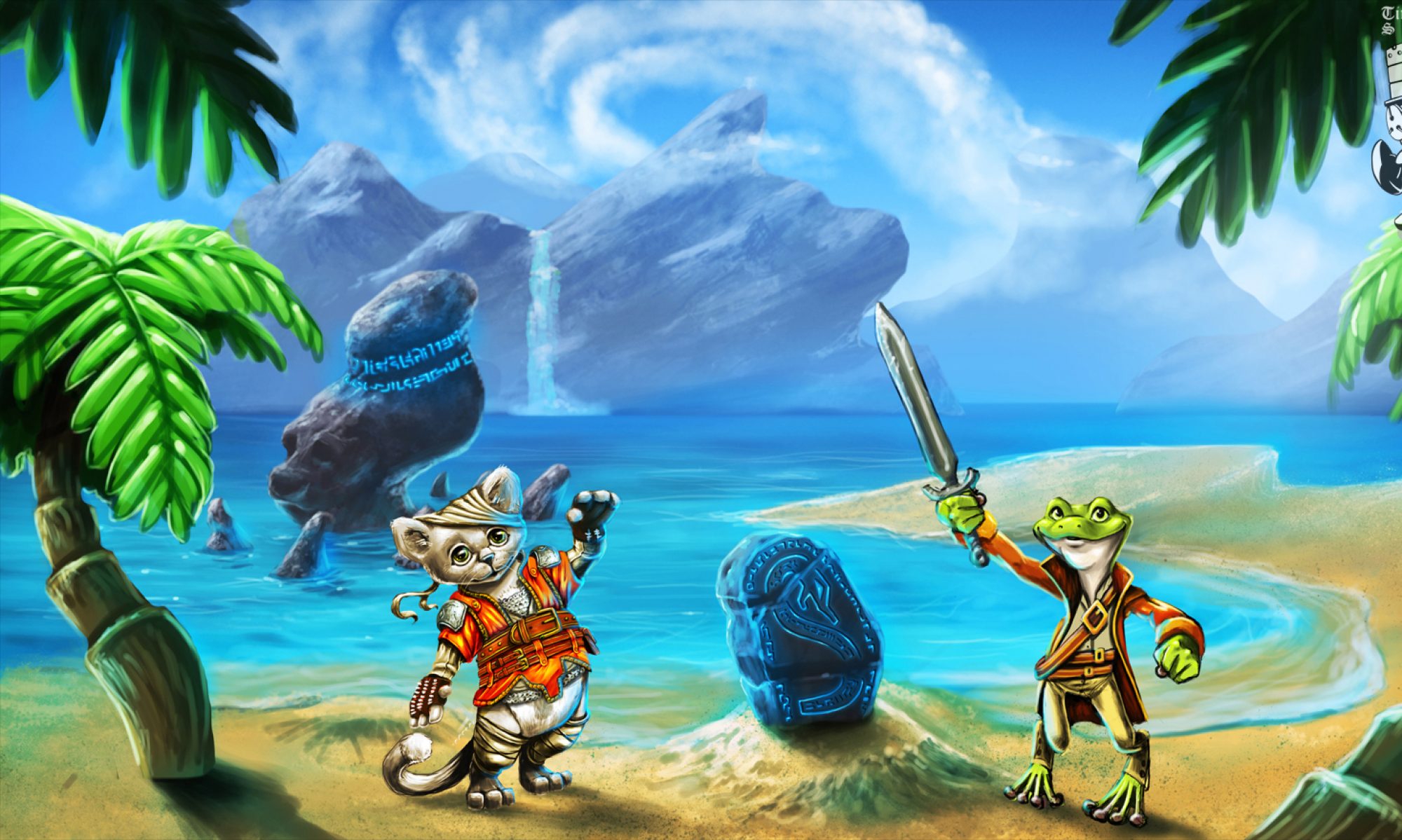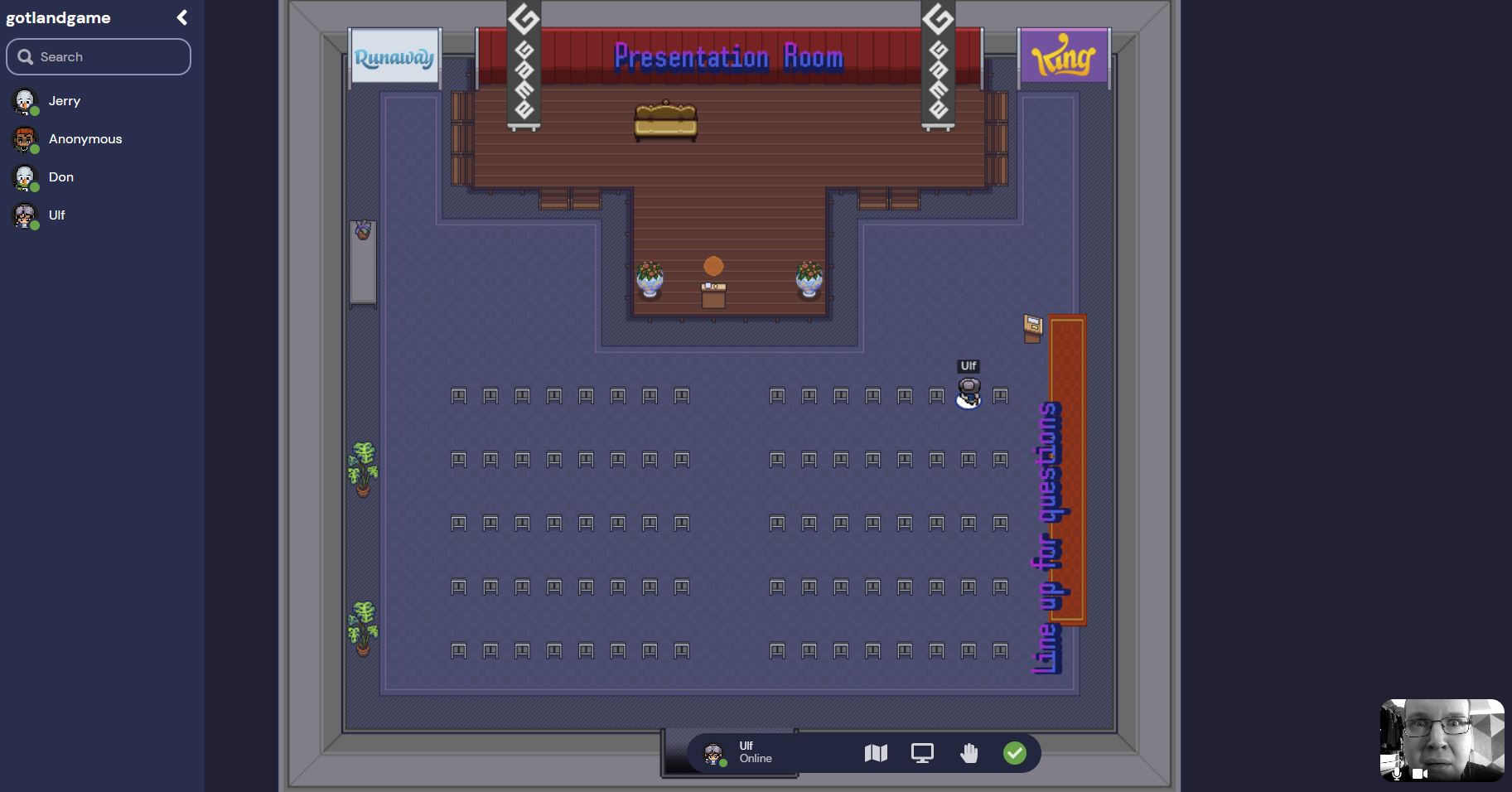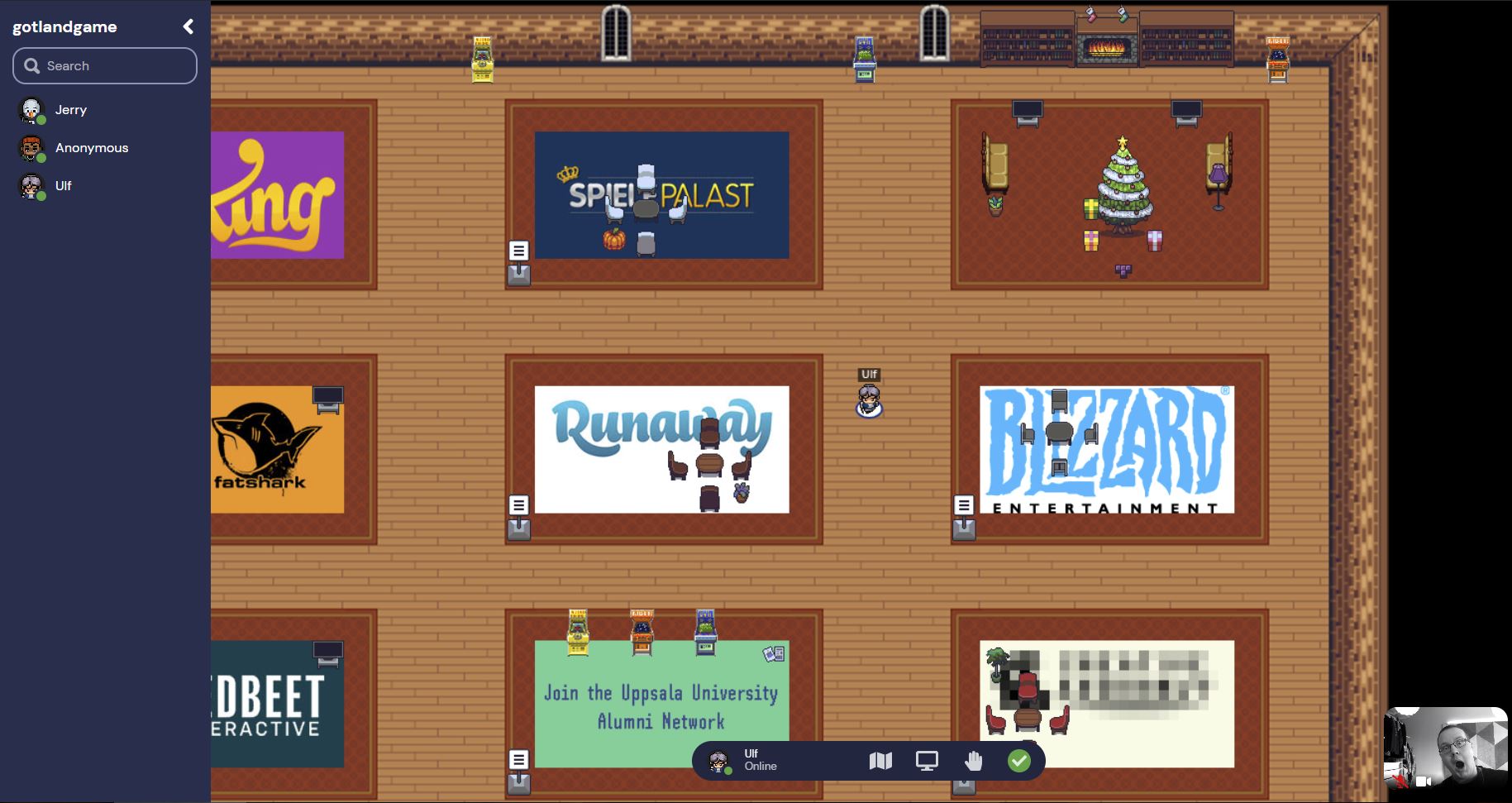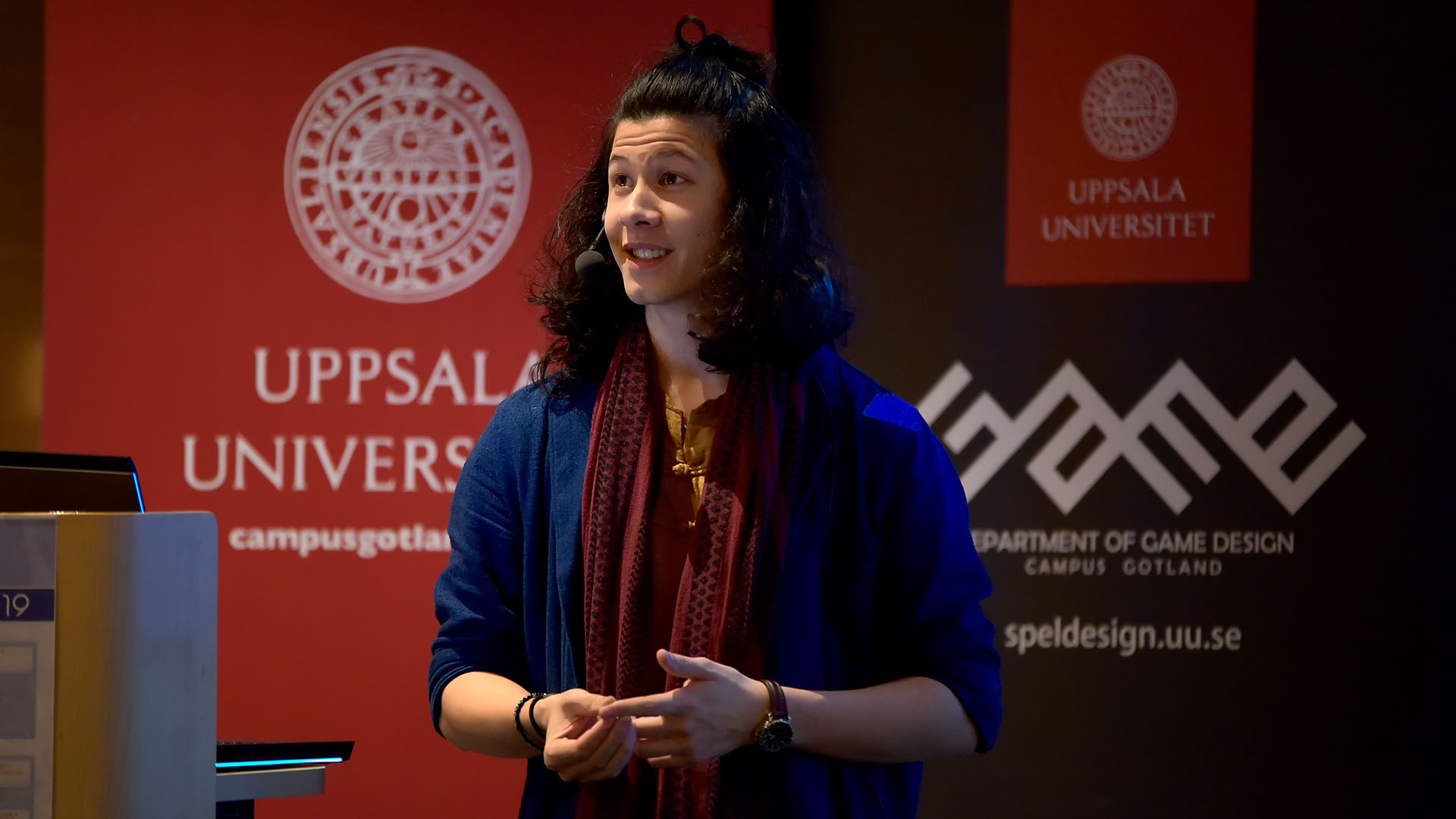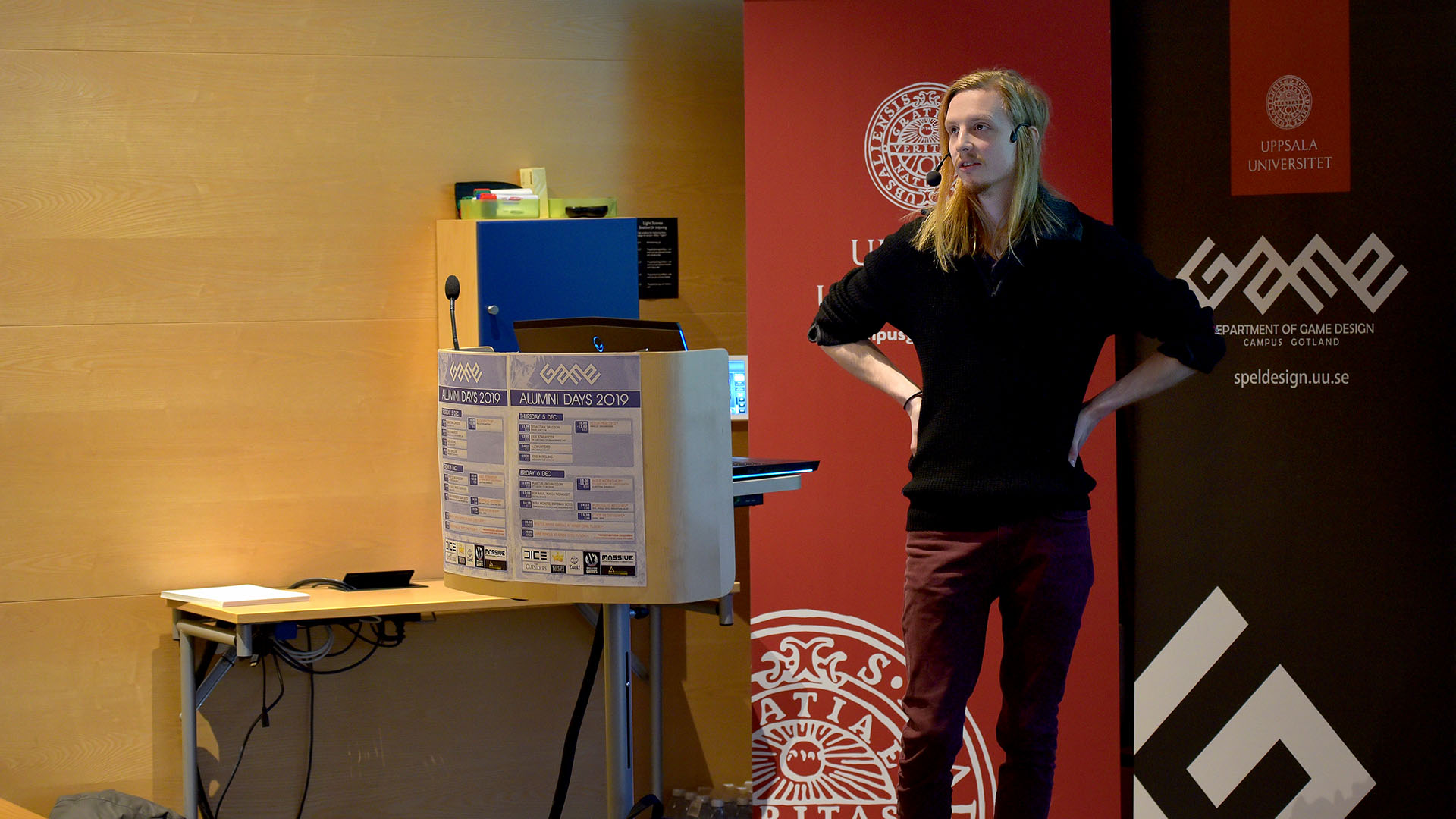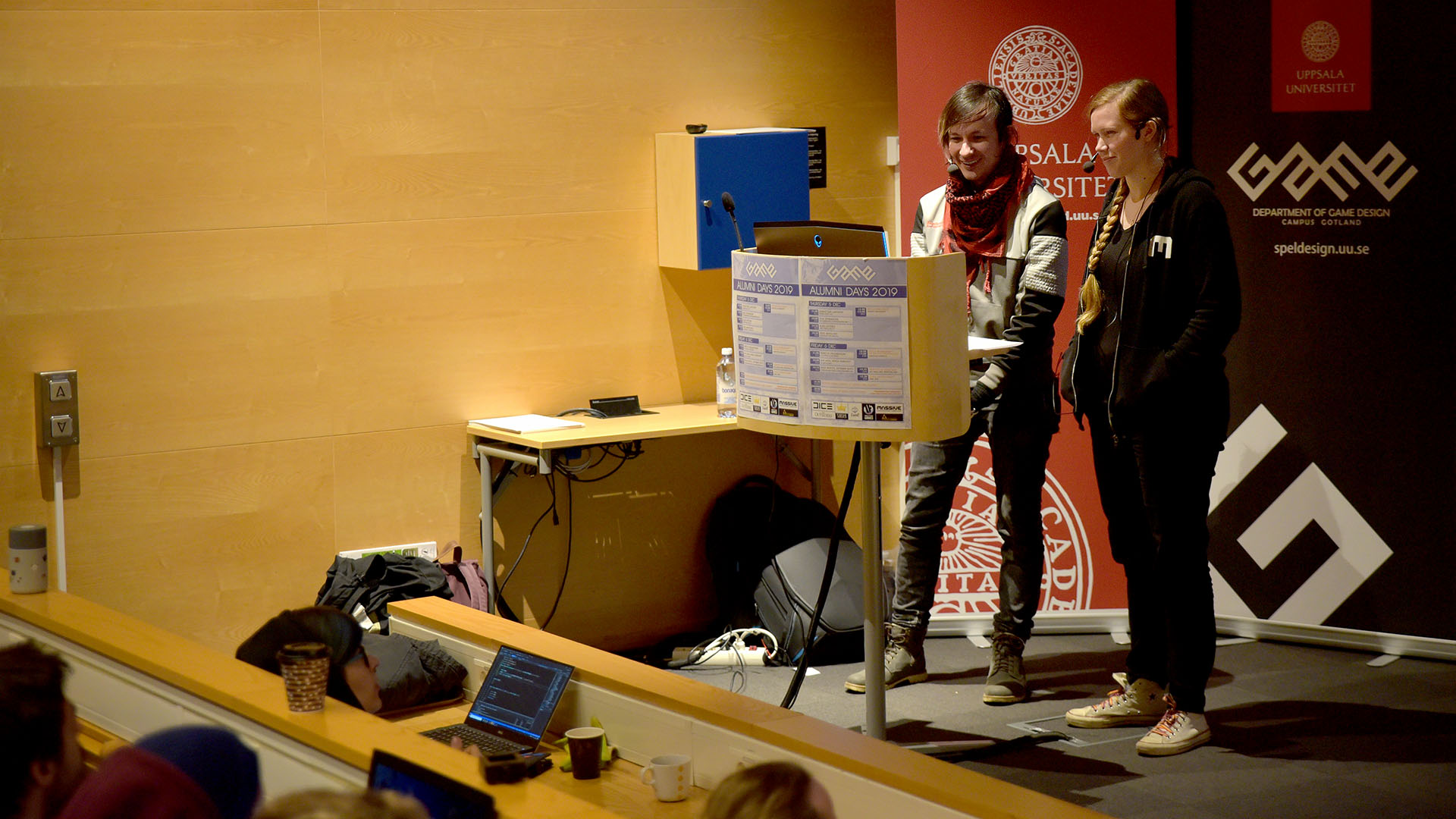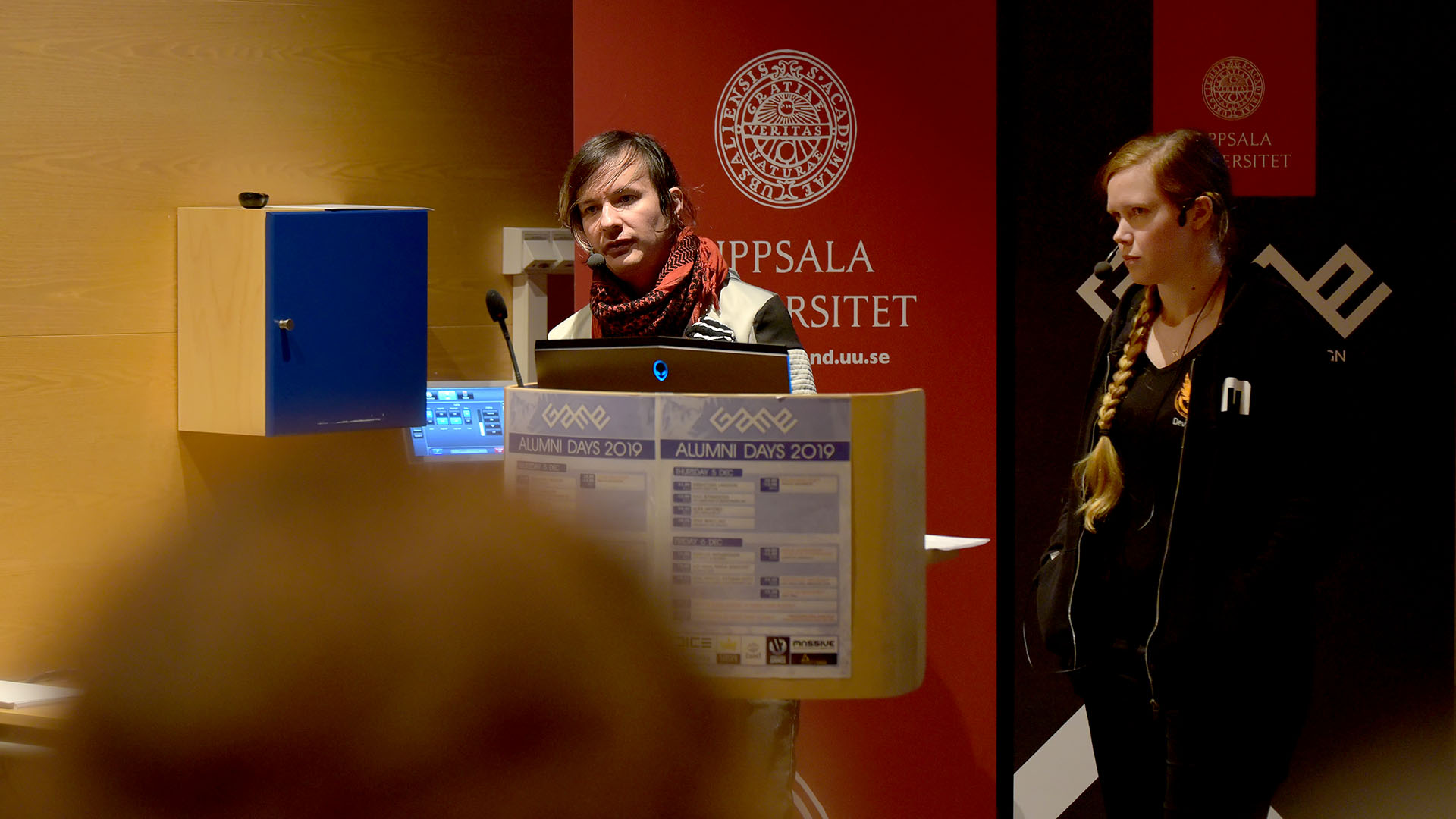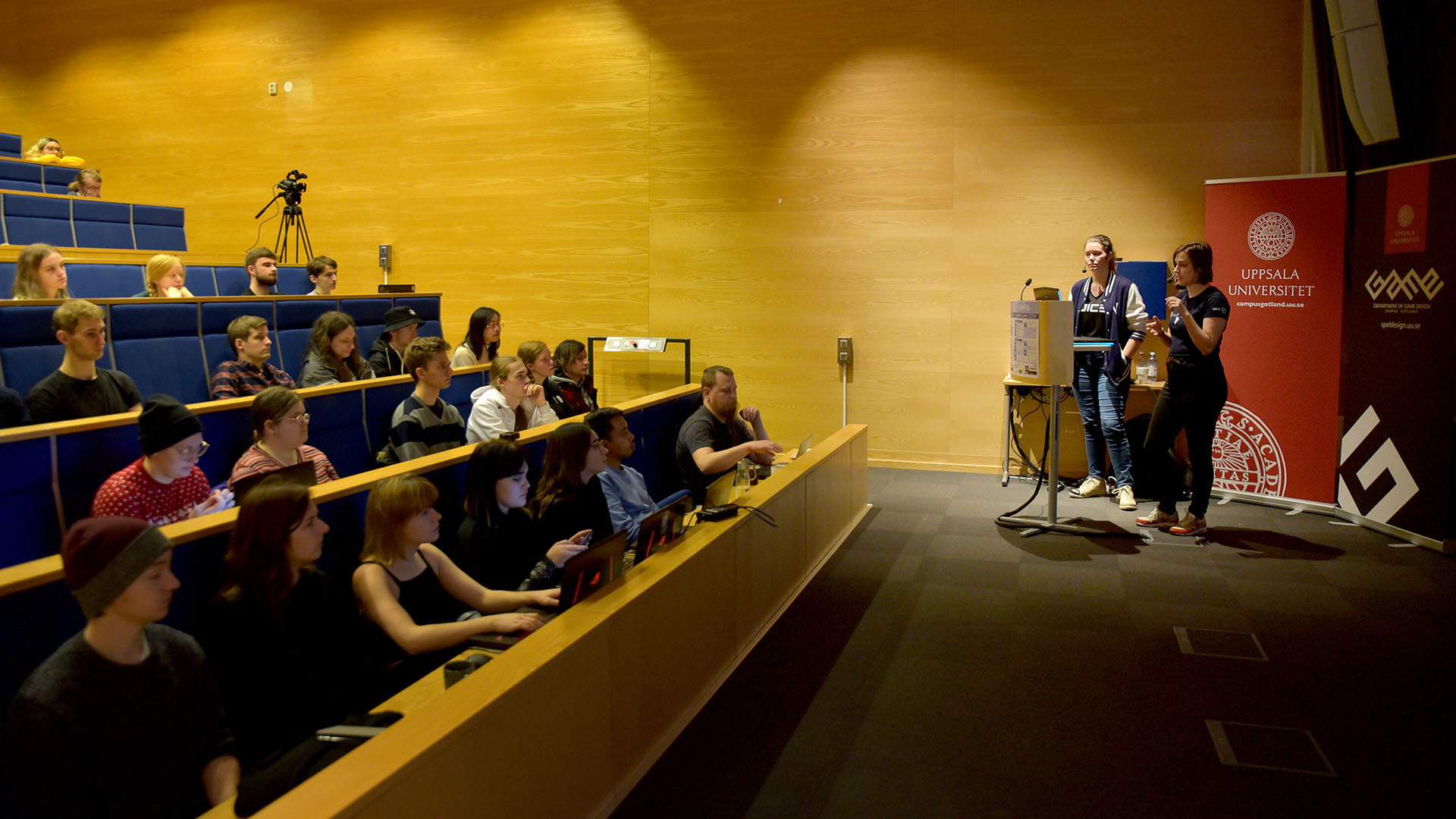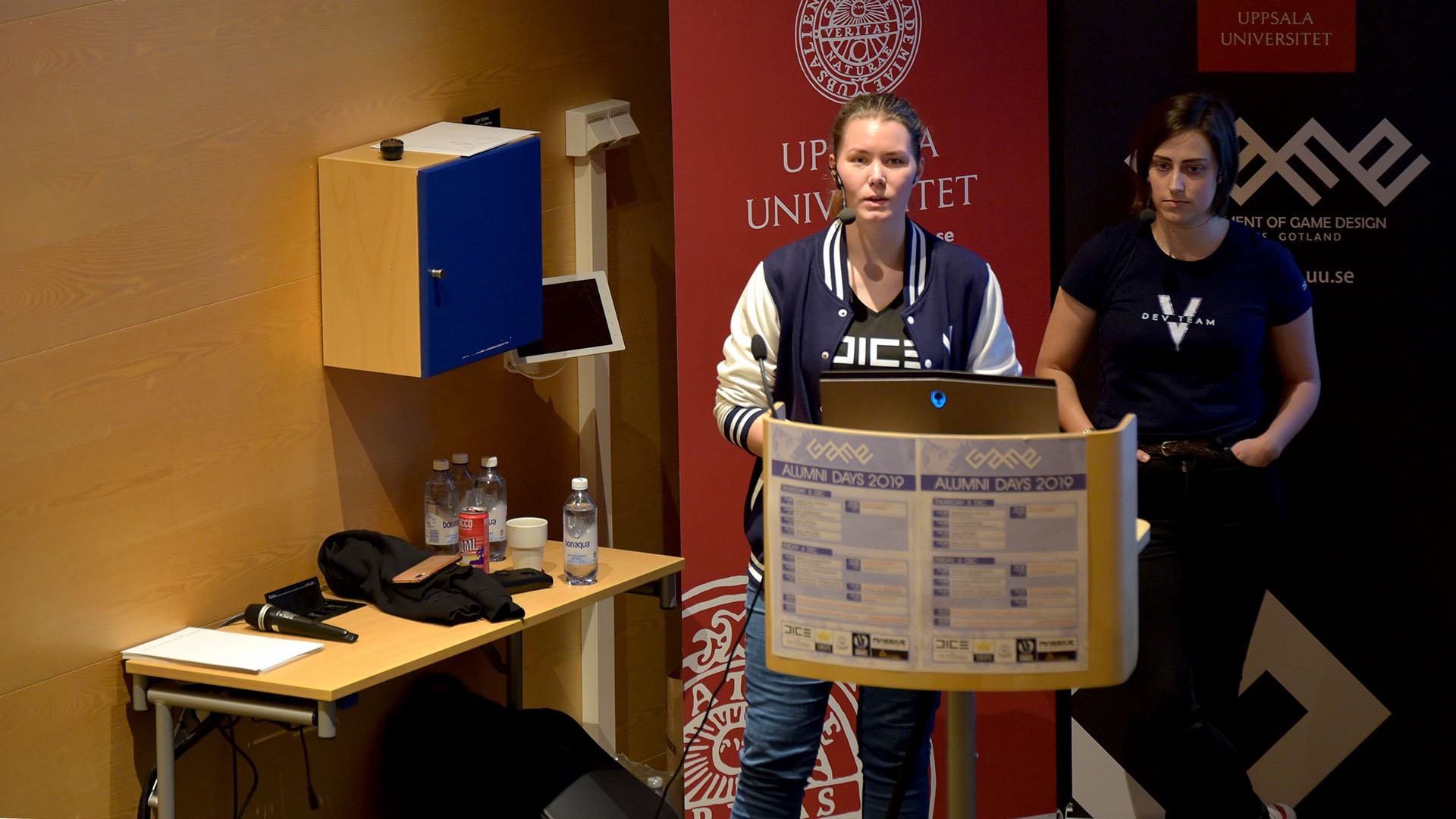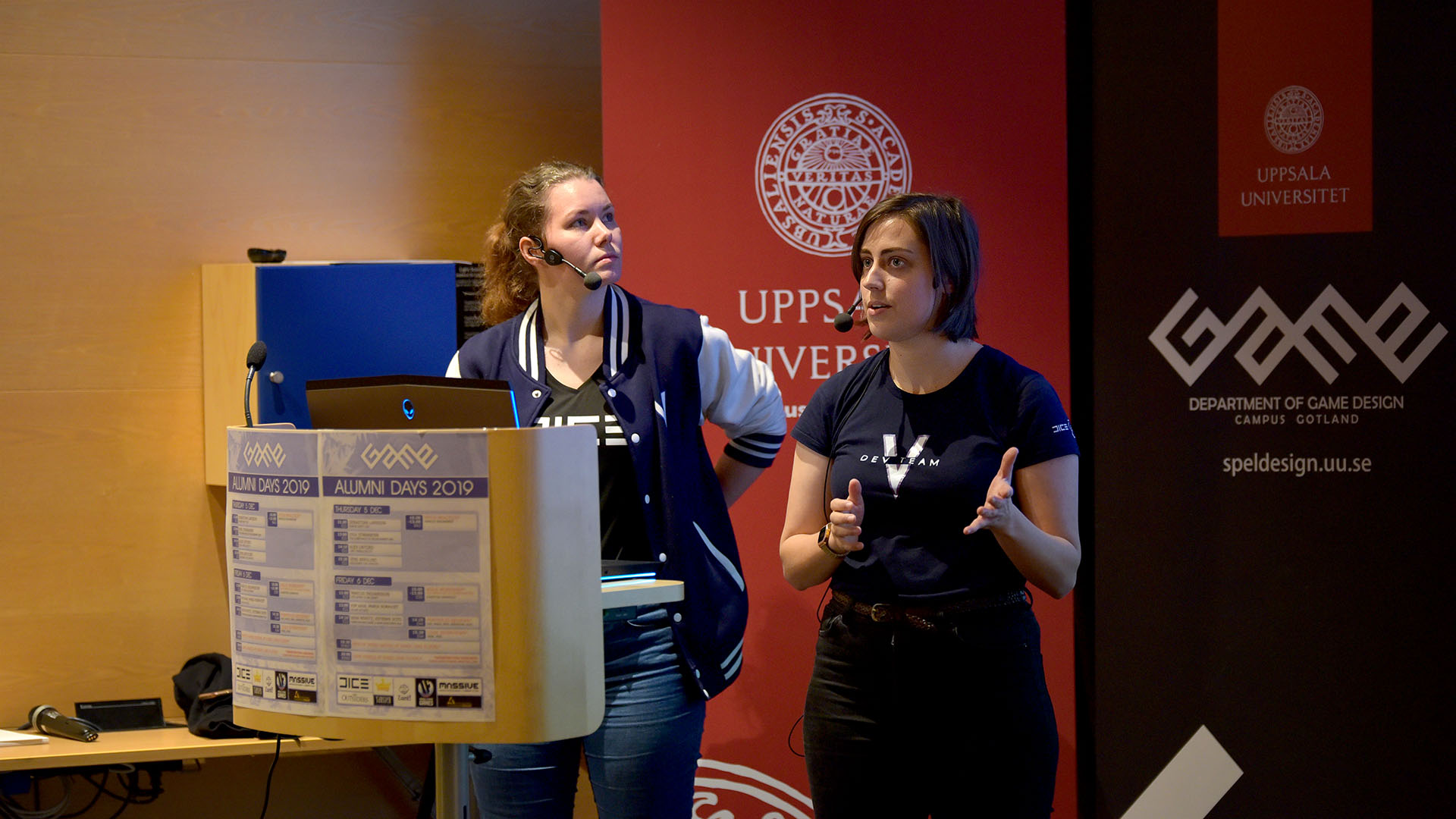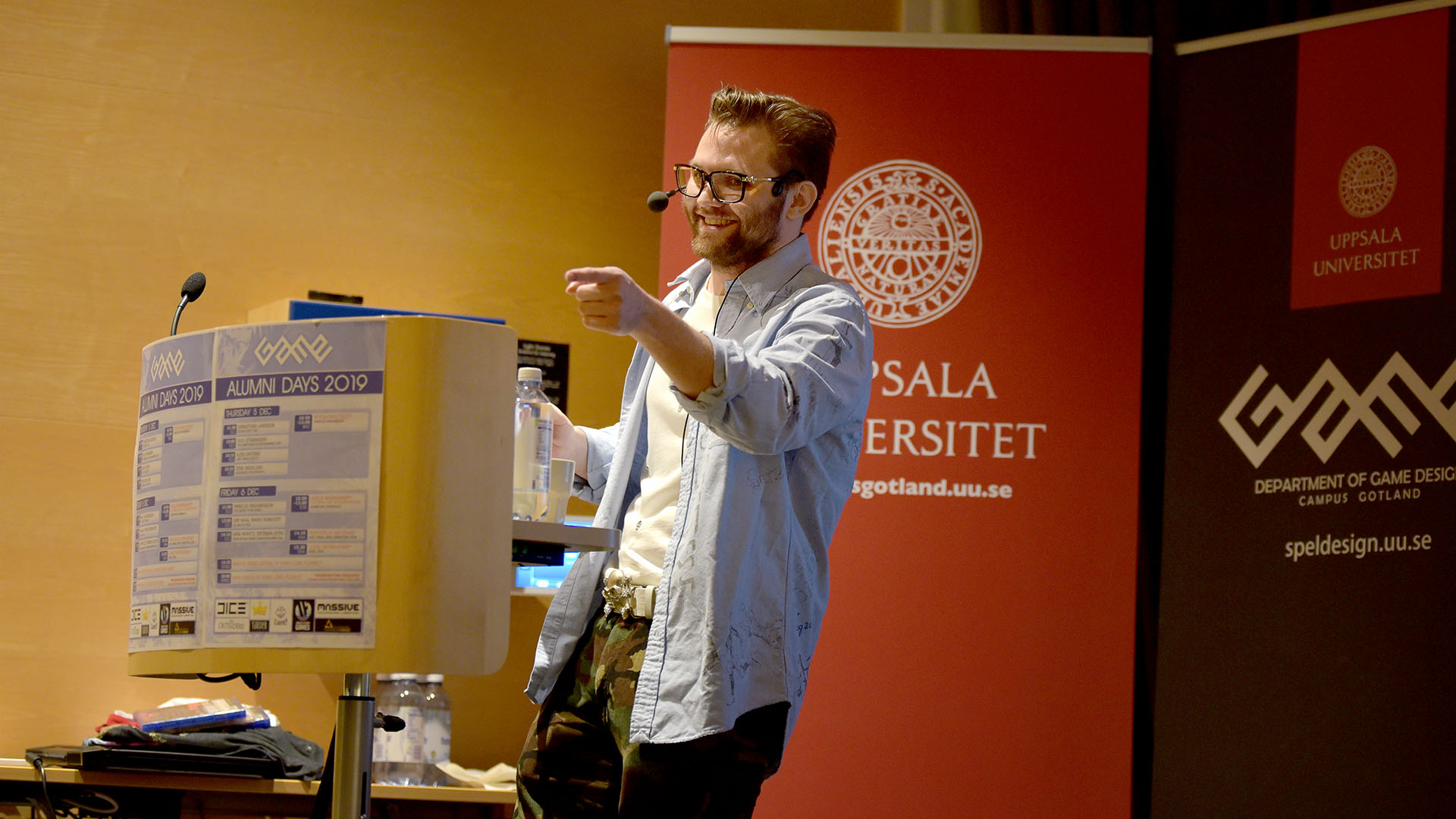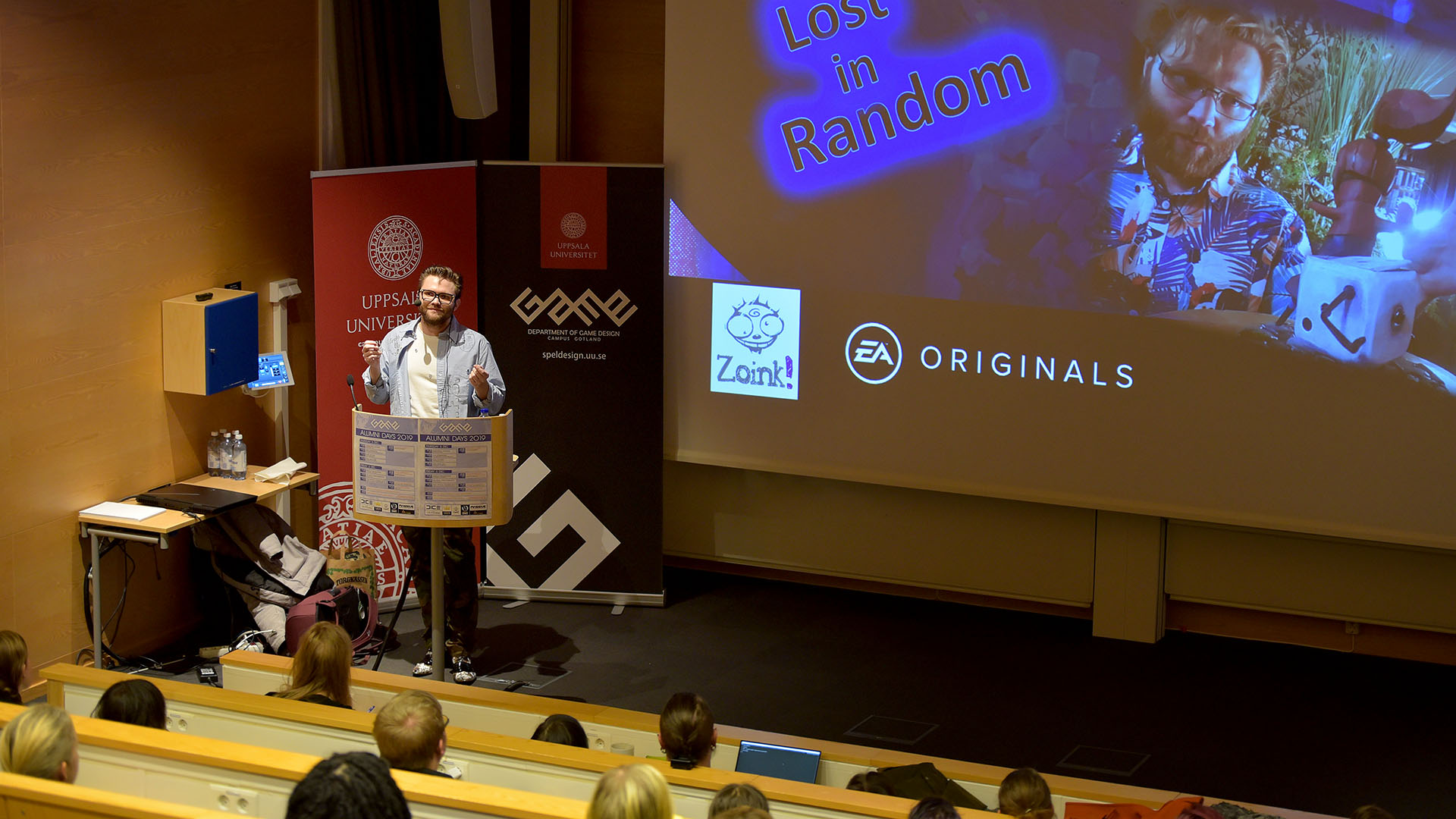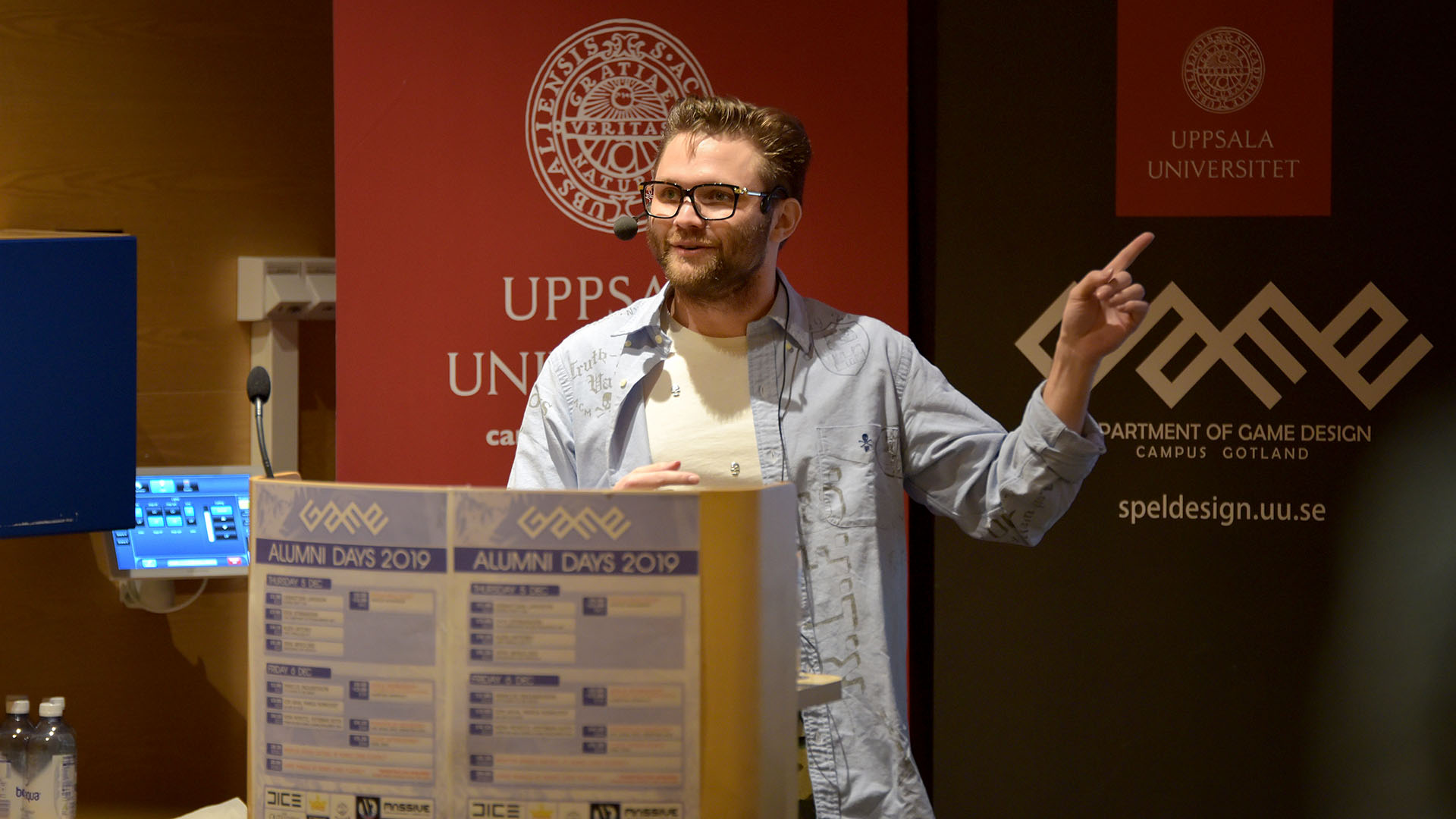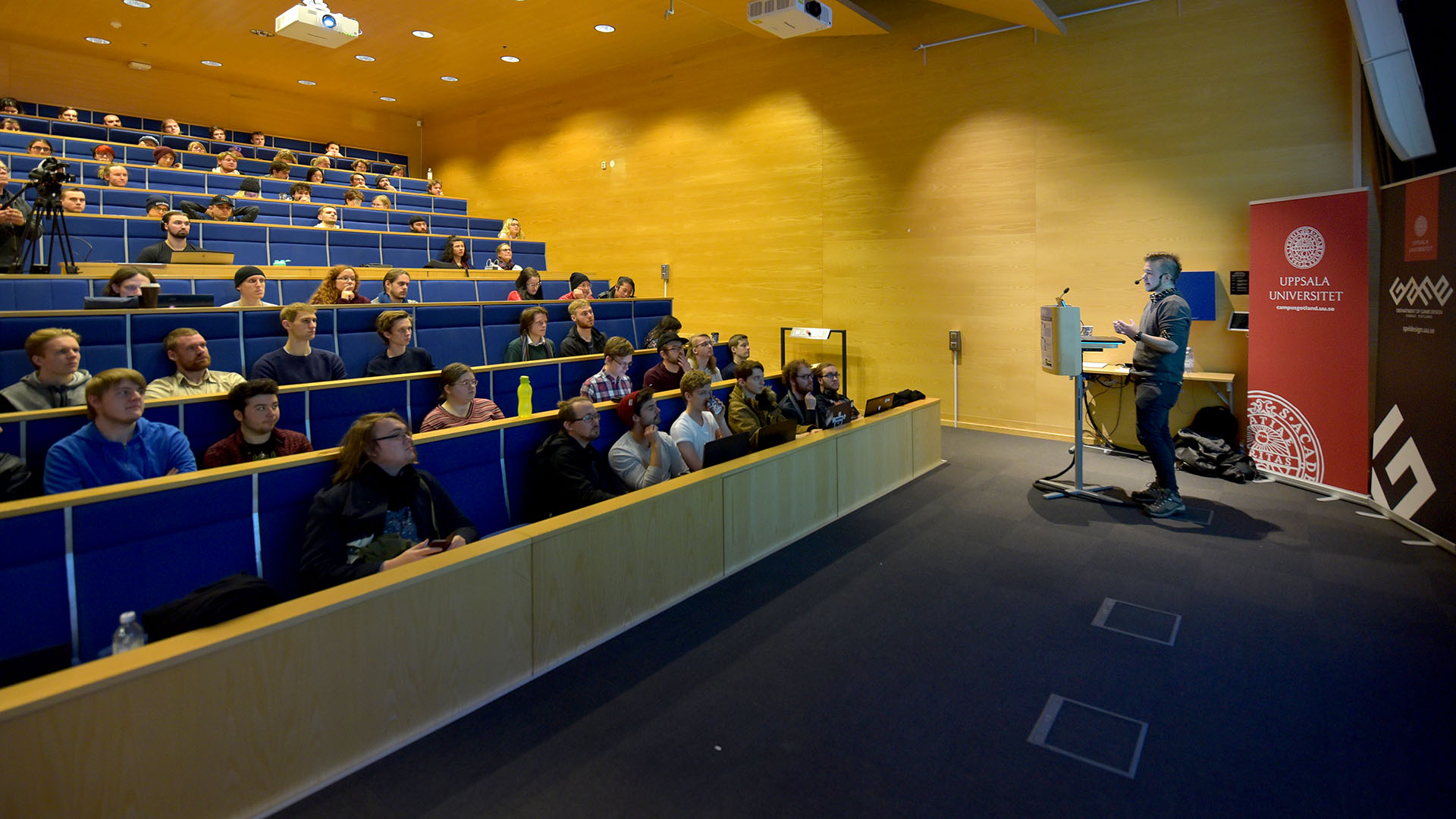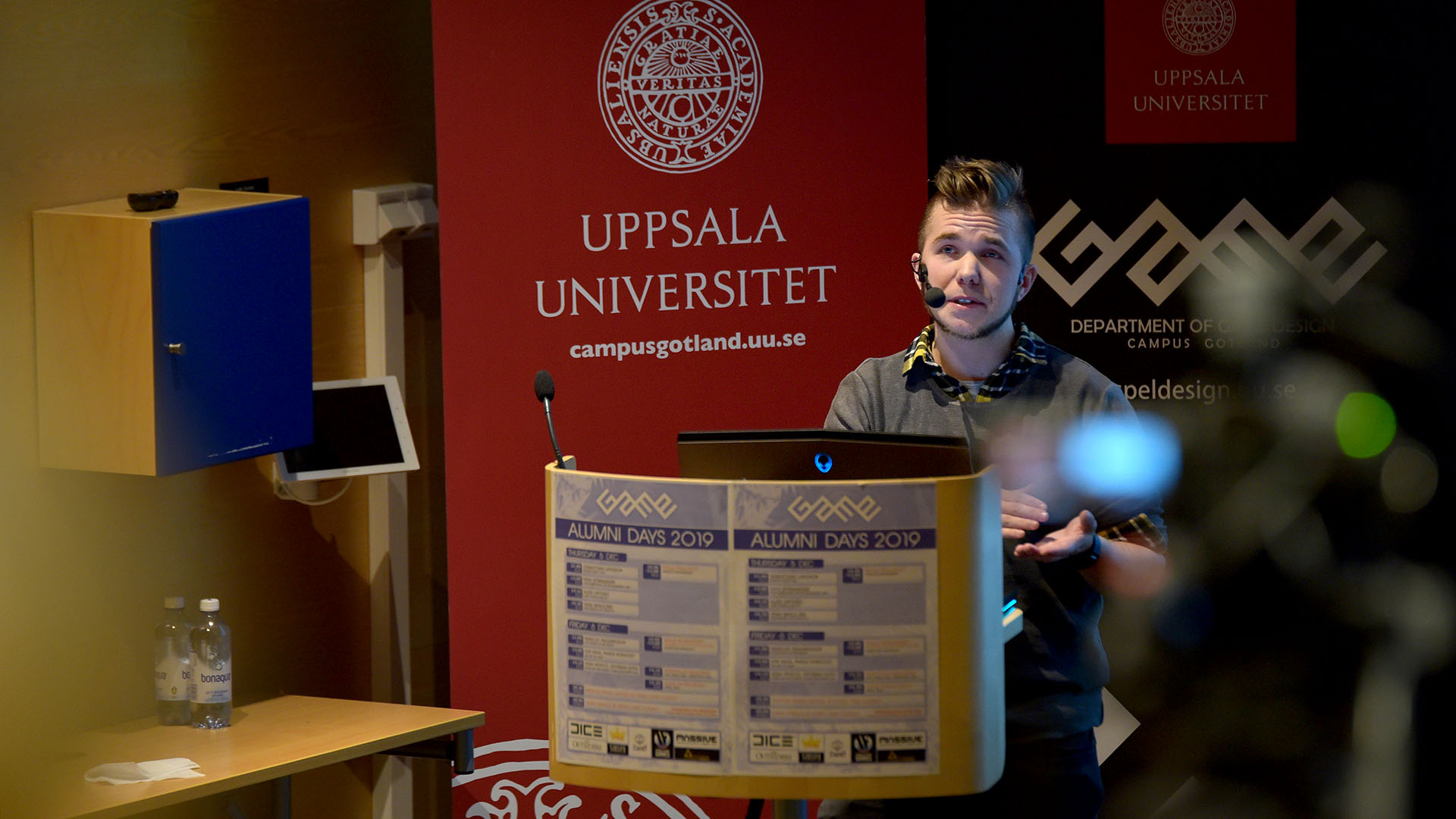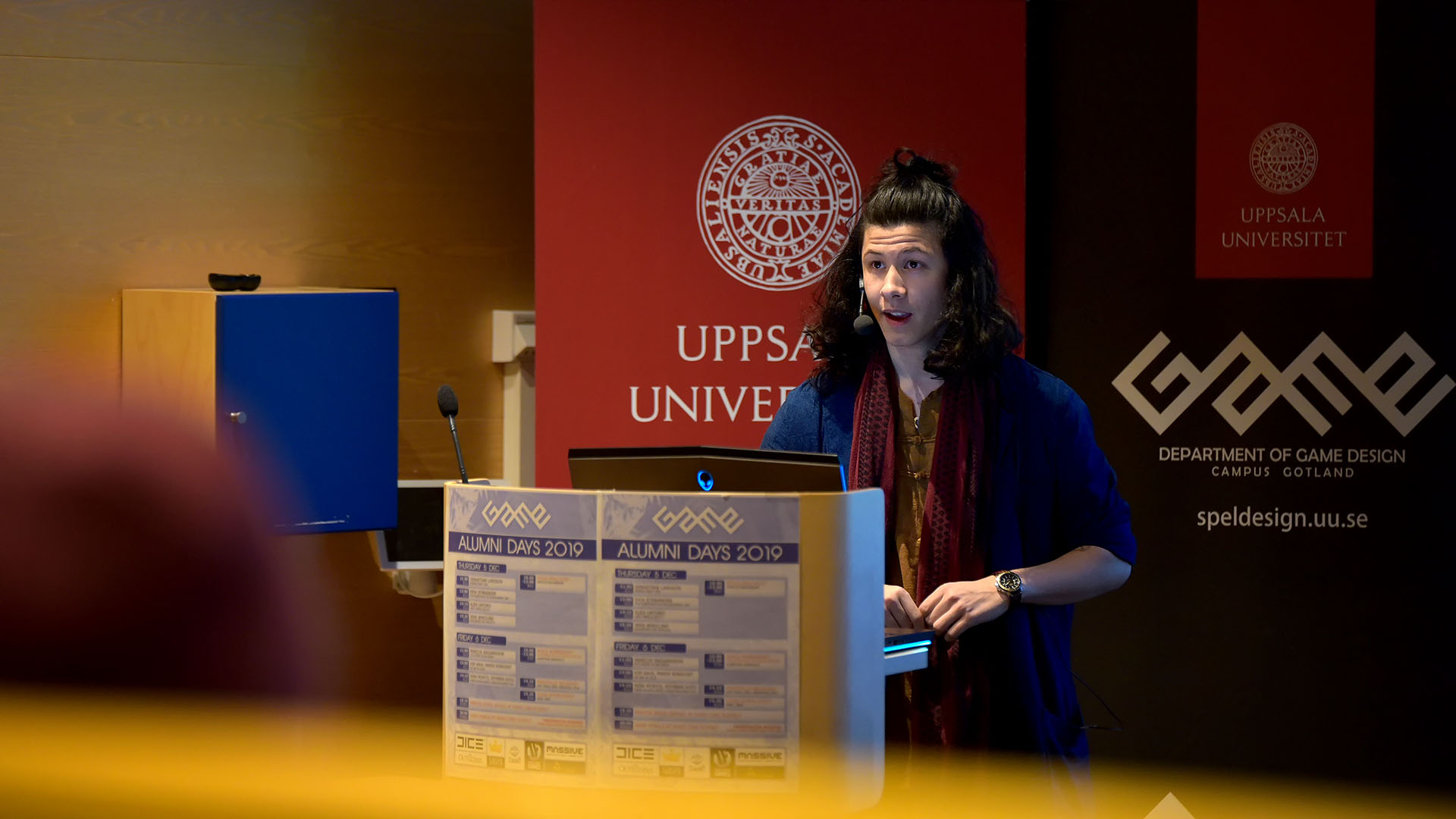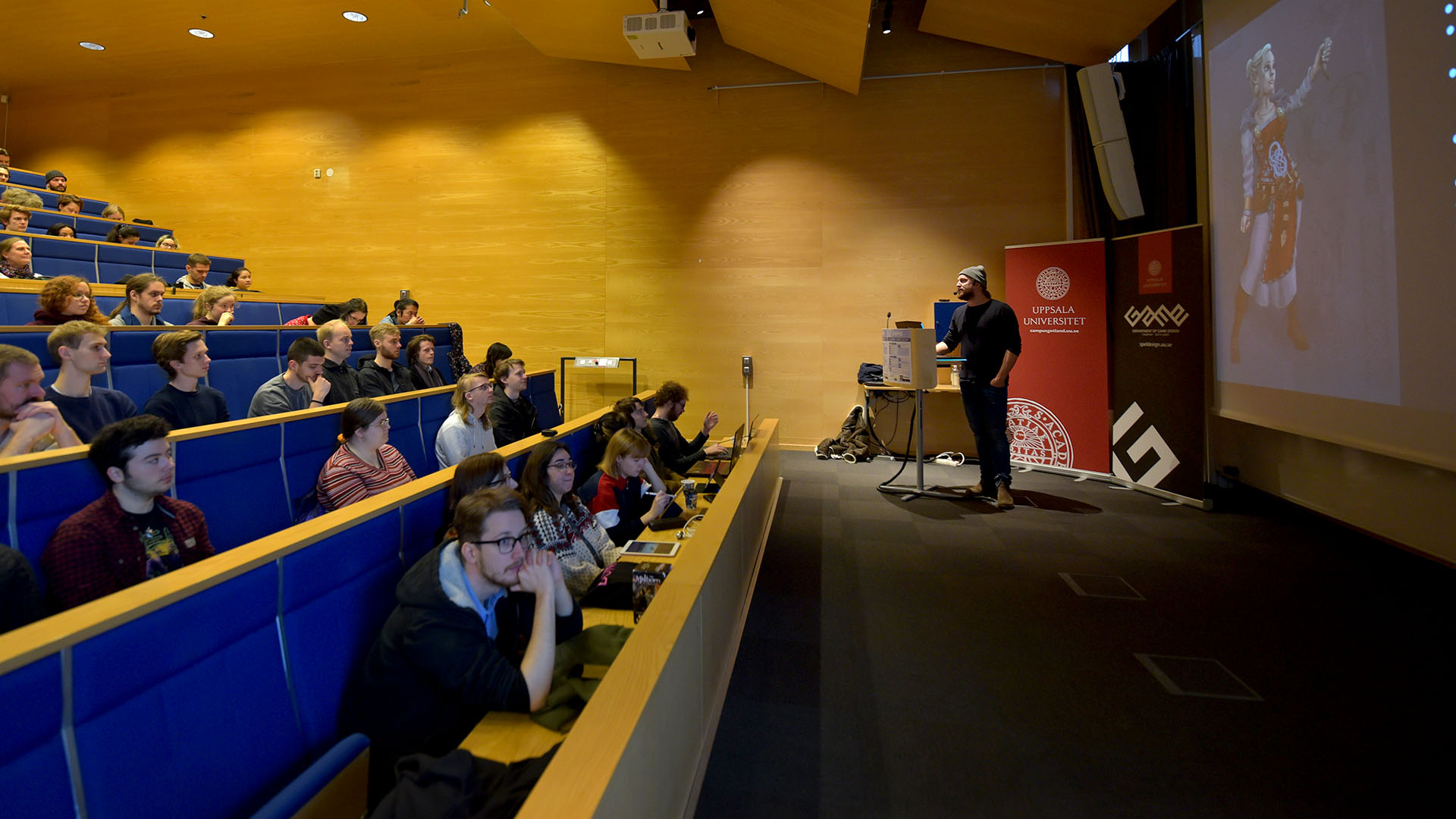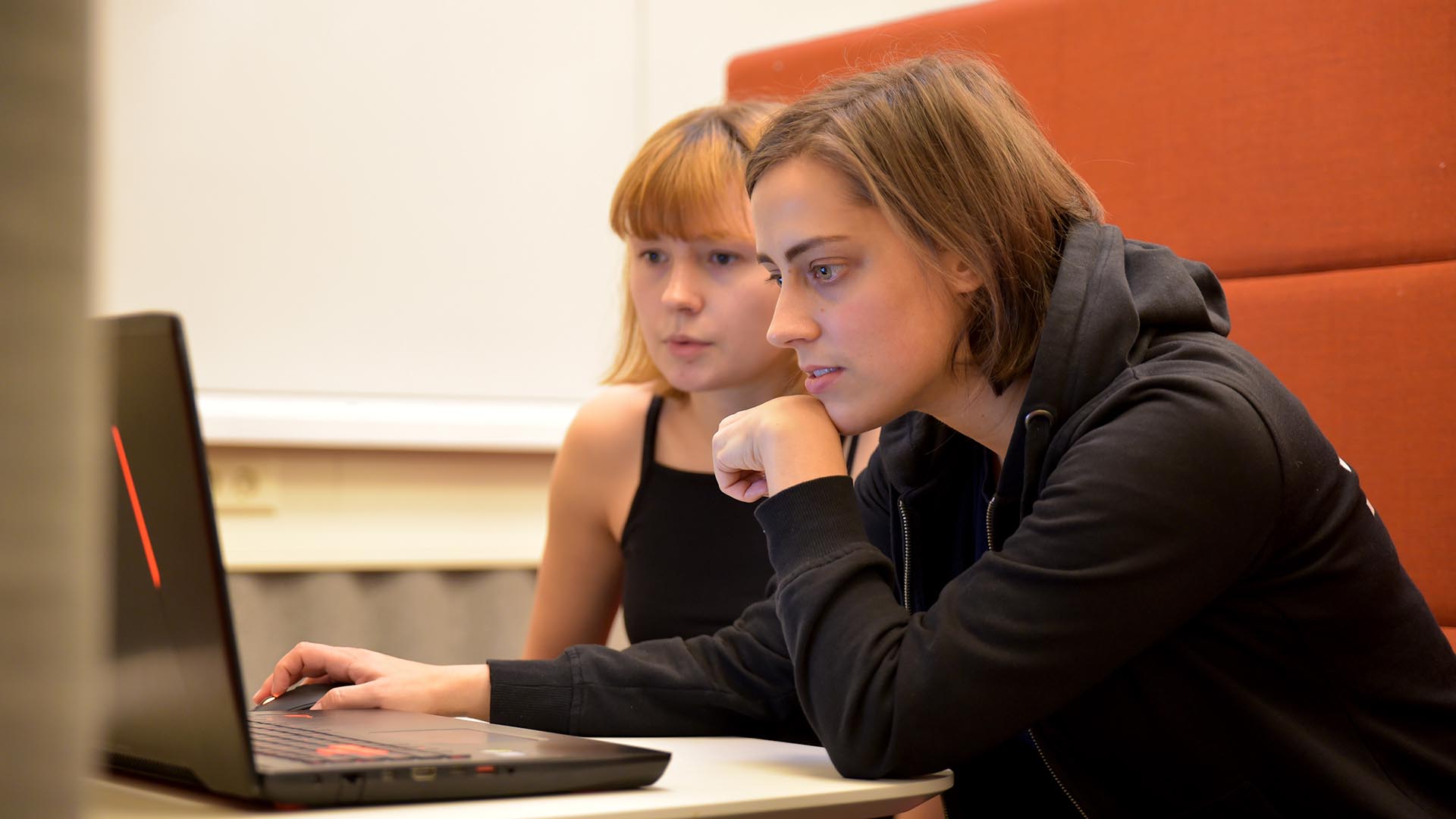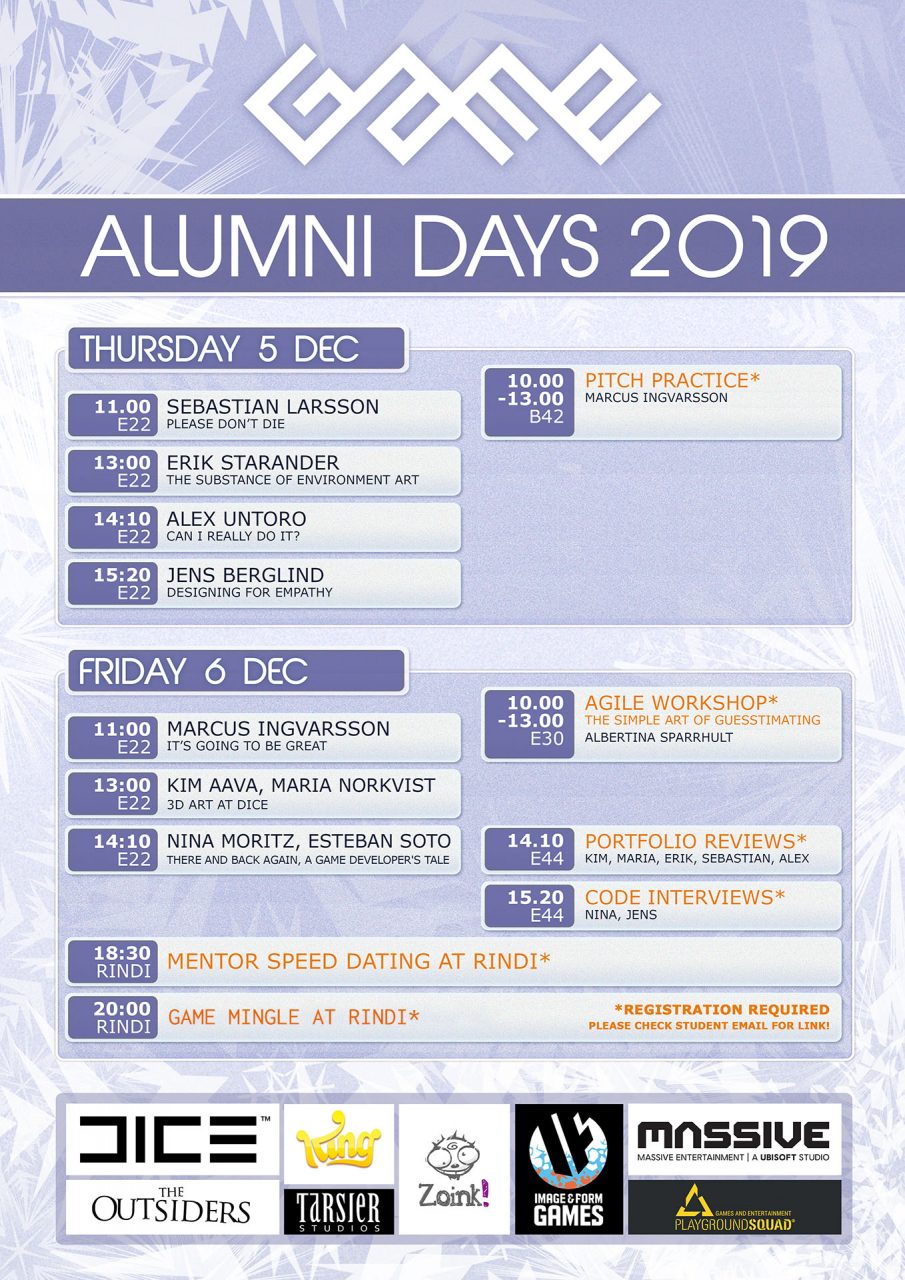Join us on Wednesday evening and meet alumni working in the games industry. The event is held in our high-tech cyber-futuristic virtual reality, where we will be joined by industry professionals from across the world. They have all been where you are, now. They have all studied at GAME, graduated and gone on to great things.
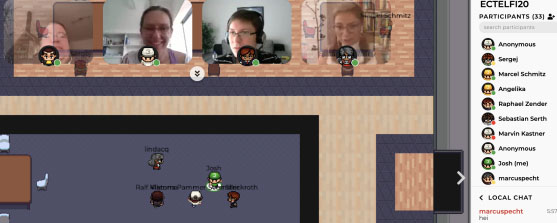
So clear your calendar, stock up on the glögg and come meet our people at Blizzard, King, Runaway Play, Spiele-Palast, Redbeet Interactive, Creative Assembly, Fatshark, from the comforting corona-safety of your own home.
Pssst… are you an alumn and would like to shot the breeze and answer questions from up-and-coming game developers? Contact Ulf Benjaminsson to get your own lounge area. 🙂
Program:
17:30: Connect and test your tech, have a look around
Click here to join our space on Gather. Set up your camera and mic. Customize your avatar. Use your real name. Get to know the controls and then walk to the lecture hall in the virtual world.
18:00-18:50: Rabi Afram, Engineering Manager @ King
Rabi graduated from Game Design & Programming in 2013. He has a wide array of experience in the game industry working with PC, console and mobile games. Outside of work he plays a lot of tabletop role playing games.
Abstract:
“The talk is going to cover the journey I have made in the industry and the different lessons that I learned that can help you progress in your careers. How do you start in an entry level position and progress from there?”
19:00-19:50: Emma Johansson, Creative Director @ Runaway Play
Emma Johansson graduated from Game Design & Graphics in 2009. She has shipped 10+ titles across multiple platforms, and is currently living in New Zealand working as Creative Director at Runaway Play. Emma is leading the company’s product development process as well as the company’s creative vision. Emma’s passion lies in creating beautiful, wholesome and inclusive games.
Abstract:
“The games industry is always changing, but there are some lessons to be learnt from game development that always stay the same! During this talk Emma will share her top 10 lessons learnt from over a decade of experience working in the games industry.”
20:00-??:??: Speed-dating / meet & greet
Load up with excellent beverage, a web cam and a good headset. Make sure you use your real name in Gather.
- André Bengtsson Co-founder & CEO @ Redbeet Interactive
- William Höglund Mayer, Game Artist @ Redbeet Interactive
- Anders “Saint” Ekermo, Senior Software Engineer @ Blizzard Entertainment (only available between 20:00-20:30)
- Emma Johansson, Creative Director @ Runaway Play
- Rabi Afram, Engineering Manager @ King
- Stella Nyberg-Brodda, Graphic Designer at Spiele-Palast
- Jona Marklund, Senior Technical Artist @ Fatshark
- Clement Pirelli, Trainee Programmer @ Creative Assembly
And don’t forget about the PacMan Rule for Conferences! When standing as a group of people, always leave room for 1 person to join your group.
